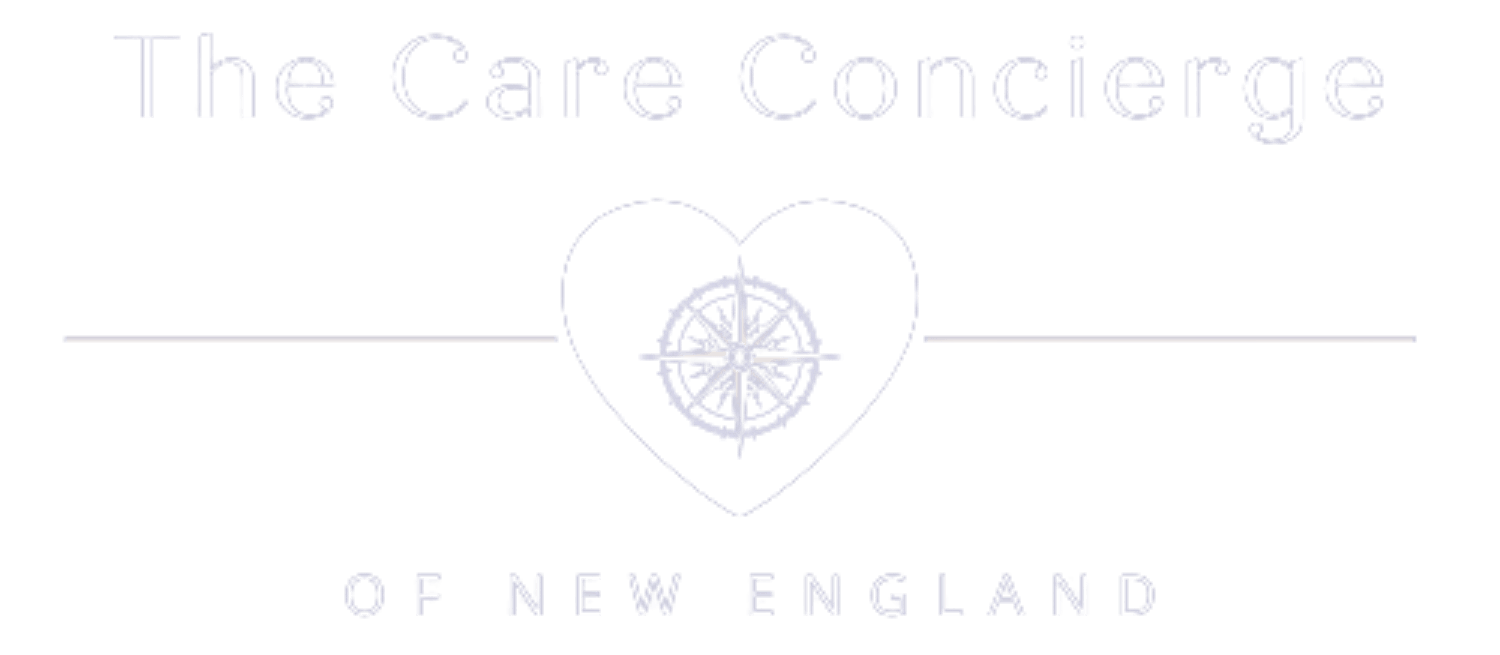News
Health News & Updates
Resources & Blog

04 May, 2024
In the realm of healthcare and support for the elderly, the importance of specialized care for individuals with dementia cannot be overstated. Memory care facilities are designed to offer a sanctuary that not only addresses the unique needs of these individuals but also enhances their quality of life. This blog post will explore the pivotal role that memory care facilities play in providing specialized care. We will discuss how these facilities are tailored to meet the cognitive and emotional needs of residents, the therapeutic interventions employed to maintain or improve cognitive functions, and the support systems in place for both the individuals and their families. The goal is to shed light on why choosing a memory care facility can be a crucial step in ensuring a dignified and supportive environment for loved ones with dementia. Tailored Environment: Creating a Safe and Comfortable Setting Design and Accessibility Memory care communities prioritize creating an environment that is both safe and comfortable for residents with dementia. In these specialized sectors of assisted living facilities, everything from the layout of the rooms to the color schemes is designed with the cognitive needs and safety of dementia patients in mind. For instance, easy-to-navigate spaces can help reduce confusion and anxiety, while secured areas prevent wandering, a common concern among family members of those with dementia. Personalized Care and Support Assisted living facilities offering memory care services go beyond the standard medical care. Each memory care unit is staffed with trained professionals who understand the complexities of dementia care. This allows for personalized support tailored to the individual needs of residents, whether it’s assisting with daily activities or providing specialized therapeutic interventions. Memory care units strive to maintain a high staff-to-resident ratio, ensuring each person receives the attention and support they need. Therapeutic Interventions Most memory care communities incorporate a variety of therapeutic interventions aimed at slowing cognitive decline and promoting emotional well-being. These can range from structured activities, like music therapy and sensory gardens, to more individualized cognitive therapies. The goal is to engage dementia patients in activities that stimulate their cognition, while also providing a sense of accomplishment and joy. Family Involvement and Support Understanding the emotional toll on family members is an integral part of the care provided in memory care services. Facilities often organize support groups and educational sessions to help families better understand dementia and how to communicate effectively with their loved ones. This holistic approach ensures that not just the residents, but also their families are supported throughout the dementia care journey. Cost Considerations While the memory care cost can be higher than traditional assisted living due to the specialized services provided, many families find the investment worthwhile for the peace of mind and quality of care their loved ones receive. Families need to research and compare memory care communities to find the right memory care community that fits their financial situation and provides the level of care their loved one needs. By focusing on tailored environments, personalized care, therapeutic interventions, family support, and transparent cost considerations, memory care communities offer a sanctuary for those with dementia and their families. Selecting the right memory care facility is a critical decision that can greatly impact the quality of life for dementia patients and provide reassurance to their family members. Person-Centered Care: Focusing on Individual Needs and Preferences

04 May, 2024
When it's time to explore memory care options for a loved one, being well-informed and prepared significantly impacts the decision-making process. This guide is designed to support families and caregivers through the complex journey of selecting the most suitable memory care facility. It details critical inquiries to pose during visits, including questions about the qualifications of the staff, the specifics of care plans, and the availability of activities designed for those with memory impairments. Moreover, it emphasizes vital aspects to observe, such as the facility's cleanliness, the general atmosphere, the interactions between staff and residents, and the implemented safety protocols. Our goal is to equip families with a thorough toolkit, enabling them to make decisions with confidence and secure the most compassionate and dignified care for their loved ones as they embark on this new phase of their lives. Staff Qualifications: Ensuring Expertise in Memory Care Services Assessing Staff Credentials When considering an assisted living facility with a memory care unit, the qualifications of the staff are paramount. Family members should inquire about the training and certification requirements for those providing care. It's crucial that personnel not only have a background in medical care but also specialized training in dementia care. This ensures that they possess the knowledge and skills necessary to meet the unique needs of dementia patients effectively. Staff-to-Resident Ratio The staff-to-resident ratio in memory care units is an essential factor. A lower ratio means more personalized and attentive care, which is critical for individuals with memory impairments. When visiting memory care communities, ask about this ratio during different times of the day to get a sense of how care is managed around the clock. The right memory care community will prioritize maintaining an optimal staff-to-resident ratio to ensure each resident's needs are adequately met. Ongoing Training and Support Most memory care communities are committed to the continuous professional development of their staff. This includes regular training sessions on the latest dementia care techniques and strategies. Families should inquire about the nature and frequency of this training to ensure the staff is up-to-date with the best practices in dementia and memory care. Understanding the Impact on Memory Care Cost It's important to note that the level of specialized care and staff qualifications in an assisted living facility's memory care unit can affect the overall memory care cost. While higher costs might indicate a higher quality of care and staff expertise, it's essential for family members to evaluate how these factors align with their financial planning and the specific needs of their loved ones. By focusing on these areas related to staff qualifications in memory care communities, families can make a more informed decision, ensuring their loved ones receive the highest standard of care tailored to the challenges of living with dementia. Care Plan Customization: Tailoring Support to Individual Needs

04 May, 2024
Transitioning to assisted living is a significant life change accompanied by a range of emotions, including relief, excitement, apprehension, and uncertainty. We provide guidance and practical advice for individuals and their families going through this crucial move. Our suggestions cover everything from selecting the right facility that aligns with your needs and preferences to preparing emotionally and physically for the move. We discuss strategies for maintaining independence within a supportive community and ways to keep in touch with loved ones. This blog is essential reading for anyone considering or making the move to assisted living, offering tools and insights for a positive and smooth transition. Choosing the Right Facility: Finding Your Ideal Assisted Living Community Research Thoroughly: Start your search by researching various facilities online, reading reviews, and gathering feedback from current and former residents and their families. Consider Location and Accessibility: Choose a location that is easily accessible for family and friends, ensuring regular visits and a strong support network. Assess the Level of Care Provided: Ensure the facility offers the appropriate level of care for your needs, including medical support, daily living assistance, and emergency response systems. Visit Multiple Facilities: Schedule tours to observe the environment, interact with staff and residents, and assess the overall atmosphere and cleanliness. Evaluate Activities and Amenities: Look for a community that offers engaging activities and amenities that match your interests and lifestyle, promoting a fulfilling and active life. Understand Costs and Financial Options: Carefully review all costs involved, including room and board, services, and any additional fees. Explore financial assistance programs that may be available. Check for Accreditation and Licenses: Verify that the facility has the necessary accreditation and licenses, ensuring it meets state and federal regulations for safety and quality care. Emotional Preparation: Navigating the Rollercoaster of Feelings Moving to an assisted living facility can elicit a complex blend of emotions, not only for the individual making the move but also for their family members. It's normal to feel a mix of apprehension, sadness, loss of independence, and even excitement for the new chapter ahead. Preparing emotionally is as crucial as the physical aspects of the move. Here are some strategies to help manage these feelings: Open Communication: Having honest discussions about the transition with family, friends, and potential caregivers can alleviate feelings of isolation and anxiety. Sharing fears and expectations allows for emotional support and understanding from loved ones. Seek Support: Joining support groups with individuals undergoing similar transitions can provide comfort and practical advice. These groups offer a sense of community and understanding that is invaluable during such a significant life change. Focus on the Positive: While acknowledging the difficulties of the transition, try to focus on the positive aspects, such as the opportunity to meet new people, engage in different activities, and the peace of mind that comes with having support readily available. Personalize Your New Space: Making your new living space feel like home can greatly impact your emotional well-being. Bring along cherished items, photos, and decorations to personalize your new environment. Allow Yourself to Grieve: Recognizing and allowing space for grief over the loss of a previous lifestyle or home is essential. Understanding that grief can coexist with the excitement of new opportunities is part of the emotional preparation. By acknowledging and preparing for the emotional rollercoaster associated with transitioning to assisted living, individuals and their families can navigate this significant change more smoothly and with greater resilience.

04 May, 2024
A day in the life in an assisted living community begins with the warm glow of the morning sun softly filtering through the curtains, promising a day filled with camaraderie, comfort, and care. Residents awaken to a day structured around their independence and wellness, with staff members greeting them with smiling faces, ready to assist with any personalized needs. Breakfast is a social affair, where residents gather in communal dining areas, enjoying nutritious meals while engaging in lively conversation. The day unfolds with a calendar full of activities—ranging from exercise classes designed to enhance physical well-being, to creative arts workshops that stimulate the mind and soul. Afternoons might find residents in the library, engrossed in their favorite books, or participating in volunteer projects that connect them with the broader community. Each moment in an assisted living community is crafted to enrich the lives of its residents, offering a blend of assistance and independence that celebrates the joy of every day. Morning Bliss: Embracing the Start of a New Day in Assisted Living The concept of "Morning Bliss" in assisted living is more than just a serene start to the day; it embodies the essence of a community designed around fostering a sense of belonging and vitality among its residents. As the sun rises, the community slowly comes to life, with residents gradually making their way to shared spaces, greeted by the inviting aroma of freshly brewed coffee and the cheerful chatter of neighbors. Mornings here are deliberately paced, allowing each individual to start their day according to their rhythm and preferences, be it through a quiet meditation in the garden, a gentle stretch in a yoga class, or simply enjoying a warm cup of tea on the patio. This philosophy ensures that every morning is not just the beginning of a new day, but a renewal of the spirit and an invitation to engage in the joys and comforts of communal living.

09 Apr, 2024
Let's explore the vital role memory care facilities play in the lives of those living with dementia. These specialized environments are designed not only to ensure the safety of dementia patients but also to enhance their quality of life through tailored therapeutic activities, experienced care staff, and a secure setting that fosters social engagement. We'll discuss how memory care facilities differentiate themselves from traditional assisted living environments, the specific care strategies employed to support individuals with memory impairments, and the positive impacts on both patients and their families. This insightful overview aims to shed light on why choosing the right memory care facility is crucial for the well-being of dementia patients, providing them with the dignity, respect, and quality of life they deserve. Understanding the Unique Needs of Dementia Patients in Memory Care Facilities Dementia patients have unique needs that require specialized attention, thus making the choice of a memory care facility critically important. Memory care communities are designed with these individuals in mind, offering memory care services and environments that prioritize safety, stimulation, and support. Unlike a standard assisted living facility, a memory care unit integrates dementia care into every aspect of its offering, from the architectural layout to the daily activities provided. Medical care is tailored to address not only the cognitive symptoms of dementia but also the physical health challenges that may arise. Family members can find solace in knowing their loved ones are receiving this specialized care, which is crafted to enhance the patient's quality of life. However, one of the considerations that families must keep in mind is the memory care cost, which can be significant due to the comprehensive nature of the services. Despite the expenses, the benefits of a dedicated environment where professional staff understand the complexities of dementia care are invaluable. Creating a Safe and Secure Environment in Memory Care Facilities for Dementia Patients

09 Apr, 2024
Navigating the landscape of memory care facilities can be a daunting task for families seeking the right support for their aging loved ones grappling with memory-related conditions. In our blog, we aim to demystify this complex process. We provide insights into what makes memory care different from other types of senior living options, the specialized services offered, and how these facilities cater to the unique needs of residents with Alzheimer's, dementia, and other memory impairments. Our comprehensive guide also offers valuable tips on choosing the right facility, questions to ask during tours, and how to prepare for a smooth transition. Join us as we explore how memory care facilities provide not just housing, but a community and supportive care designed to enhance the quality of life for seniors facing memory challenges. Understanding the Role of Memory Care Facilities in Senior Care Memory care facilities play a pivotal role in senior care by addressing the specific needs of individuals with memory-related conditions. Unlike traditional nursing homes or assisted living communities, these facilities offer specialized programs and environments designed to reduce confusion and prevent wandering, common issues for those with Alzheimer's or dementia. Staff members at memory care facilities are trained in best practices for managing memory impairments, which allows for a higher level of personalized care. These facilities also incorporate therapeutic activities and structured routines to help maintain cognitive abilities and provide a sense of stability and security for residents. The goal is not only to ensure the physical safety of residents but also to nurture their emotional well-being, making memory care an essential component of comprehensive senior care. The Key Features of Memory Care Facilities: What Sets Them Apart?

09 Apr, 2024
When it comes to choosing a living arrangement for seniors who require assistance with daily activities, it's crucial to understand the distinction between assisted living homes and facilities. Assisted living homes, often referred to as residential care homes, provide a more home-like environment, catering to a smaller group of residents. This setting allows for personalized care and fosters a close-knit community atmosphere. On the other hand, assisted living facilities are larger and offer a wide array of amenities such as fitness centers, on-site healthcare services, and various social activities. Both options aim to support seniors with their daily needs while promoting independence and improving their quality of life. Choosing between an assisted living home and a facility largely depends on the individual's preference for the scale of the community, the level of care required, and the types of amenities that are most important to them. Assisted Living Homes: Characteristics and Benefits Assisted living homes, with their residential-like setting, aim to provide a warm and comfortable environment similar to a private home. Typically, these homes accommodate fewer residents, often ranging from 10 to 15, which allows for more personalized attention and care from the staff. The smaller scale facilitates stronger, more personal relationships between residents and caregivers, fostering a family-like atmosphere. Essential services such as meal preparation, laundry, housekeeping, and assistance with personal care are provided in a way that promotes the residents' independence as much as possible. Social and recreational activities are tailored to the interests and abilities of the residents, encouraging engagement and social interaction within a close-knit community. This type of setting is particularly beneficial for seniors who prefer a quieter, less institutional environment but still require some level of assistance with their daily activities.

09 Apr, 2024
Navigating memory care can feel overwhelming for families and caregivers, requiring patience, understanding, and compassion. Our blog post delves into the various aspects of memory care, equipping you with knowledge and tools for informed decisions. Whether supporting a loved one with Alzheimer's or dementia or enhancing their current care, this guide helps grasp the nuances of memory care services and their impact on quality of life. Understanding Memory Care: An Introduction to Memory Loss Conditions Memory care is a specialized type of care tailored to meet the unique needs of individuals with memory loss conditions such as Alzheimer's disease and different forms of dementia. These conditions affect a person's ability to perform daily activities and can significantly impact their behavior, reasoning, and communication skills. Memory care facilities and services focus on providing a safe, structured environment with routines that help reduce stress for individuals with memory loss while also offering activities designed to maintain cognitive abilities and physical health. These services often include support and education for families, helping them understand the challenges and changes their loved ones are experiencing.

21 Mar, 2024
Choosing the right senior care facility for a loved one in Rhode Island is a decision that requires thorough research, careful consideration, and an understanding of the unique needs of your family member. With the wide variety of options available, from assisted living communities to skilled nursing facilities, it can be overwhelming to determine the best fit. In this blog, we'll explore the essential factors to consider, including the level of care needed, the facility's location, staff qualifications, and the activities and amenities offered. Our goal is to provide you with the knowledge and insights needed to make an informed decision that ensures comfort, safety, and happiness for your loved one. Determining Your Loved One's Care Needs: Assessing Level of Rhode Island Senior Care Required Determining the level of care your loved one requires is the first crucial step in the process of selecting the right senior care facility in Rhode Island. Start by evaluating whether your older family member needs assistance with daily living activities such as meal preparation, bathing, dressing, or medication reminders. Assisted living facilities are ideal for Rhode Island seniors who wish to remain independent but require some support with these tasks. For older adults needing more intensive care, including medical attention and 24-hour supervision, a nursing home might be more appropriate. Furthermore, if your family member is relatively independent but could benefit from light housekeeping, companionship, or occasional assistance, in-home care services could provide the necessary support while allowing them to stay in their own home. It’s also worth considering respite care options, which offer temporary relief for family caregivers. Engaging with local valuable resources and consulting with board members or advisors who are familiar with Rhode Island's senior care landscape can provide additional insights and help tailor the decision to your family member’s specific needs. Location Matters: Finding a Convenient Senior Care Facility in Rhode Island

21 Mar, 2024
Navigating the complex world of senior care can be overwhelming, especially when searching for the best care for loved ones. This is particularly true in Rhode Island, where families face a range of options from home care to nursing facilities. Our goal is to simplify this process, offering insights into senior care in the state. Readers will learn about different care types, benefits, drawbacks, and key factors for decision-making. We aim to empower families with the knowledge to ensure their elderly loved ones receive the care they deserve. Assisted Living Facilities: A Home-Like Setting for Rhode Island Seniors Assisted living facilities in Rhode Island offer a unique blend of independence and supportive care, catering specifically to older adults who may need help with daily activities but still wish to remain as independent as possible. These establishments provide a home-like setting, where older family members can thrive while receiving the assistance they need. Services typically include meal preparation, medication reminders, and light housekeeping, ensuring a comfortable living environment. For family members, these facilities serve as valuable resources, offering peace of mind knowing their loved ones are in a safe, nurturing environment. Additionally, many assisted living communities offer respite care, providing temporary relief for caregivers. The goal is to maintain the dignity and quality of life for older adults within a community setting, as opposed to the more clinical environment of a nursing home. This balance between independence and care makes assisted living an attractive option for many families looking to find a new home for their older family members. In-Home Care Services: Supporting Independence for Rhode Island Senior Care
OPENING HOURS
- Mon - Fri
- Open 24 Hours
- Sat - Sun
- Appointment Only
©2021 by The Care Concierge of New England. Web Services by
LevelUP Digital Solutions
The Care Concierge of New England LLC
9 Oaklawn Rd
North Smithfield, RI 02896


